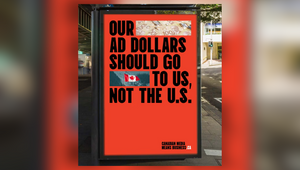
Personal Threats are Not about Hating an Ad. They’re Just about Hate.

There is, by this point, little more to offer about Gillette that hasn’t been said already. Take your pick. The toxic responses that prove the very point the ad is making. The data that shows that the overall response has been more positive than the vociferous minority would have us believe. The right of brands to adopt social causes. The need for brands to untangle themselves from decades-old strategies in the face of category disruption and rapidly evolving social attitudes on gender and sexuality. I think that more or less covers it?
When it comes to insight or opinions, I’m solidly tapped out at this point.
But it has come to my attention that some of the women involved in making the ad have been singled out by journalists, targeted by trolls and have received the vilest of threats. The attacks have been unmistakably misogynistic – from the editorial decision to focus solely on two women (or the ‘woke women’ as the dogwhistle headline reads) involved in the ad and not the dozens of men who also worked on it through to the language in the threats received.
I’ve got no desire to stir things up in what has been a pretty shitty week for the team at Somesuch. But it’s an important story to share to reach those eye-rollers at the back of the class (I can see you), who don’t get why ‘that whole woman thing’ is still an issue. Here we have two incredibly talented and hardworking women doing their job and being attacked simply for being women. I’d like to think that even the most truculent traditionalist in the industry is on board with the idea that rape threats are completely unacceptable (and please prove me right, my faith in humanity has taken a bit of a battering). I’m going to leave a link to one of the threats, which has been shared on Twitter, here – but before you click, be forewarned that it is upsetting
In 2000, DDB Latina’s Juan Carlos Oritz received death threats from Colombian guerrillas after his team won the country’s first ever Gold Film Lion for an anti-drugs ad. In 2017, Y&R Hungary took a stance against the country’s increasingly toxic far right with their Migrant Anthem project and were targeted. J. Walter Thompson reportedly received all sorts of threats and computer viruses when they hit the headlines last year. This isn’t the first time people in the ad industry have received threats – and it won’t be the last in an age where discourse has become more extreme and where empathy has become a seriously undervalued social resource.
There are so many avenues for dissent – and debate is a good thing for the industry. Even the most well-meaning campaigns don’t always land or strike true. And if an ad really winds you up, boycott the brand. Scream on social media if you want to. Green-inked letters of complaint from disgusted of Tunbridge Wells – a bit old school but classic. But when it comes to invasive, personal, poisonous threats, it stops being about hating an ad. It’s simply about hate.
I don’t have any answers. No solutions. But, for what it’s worth, we just wanted to show a bit of solidarity.















